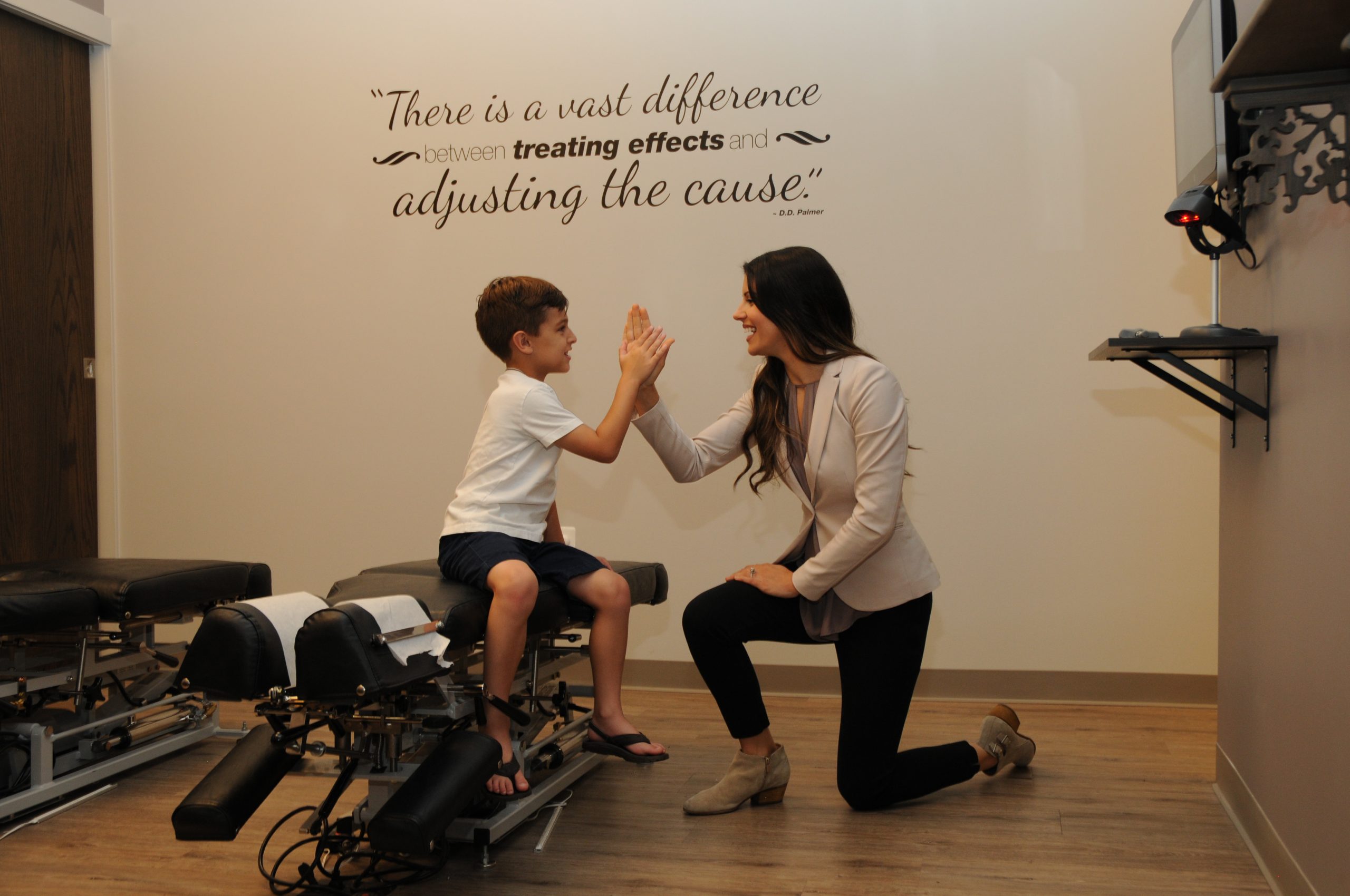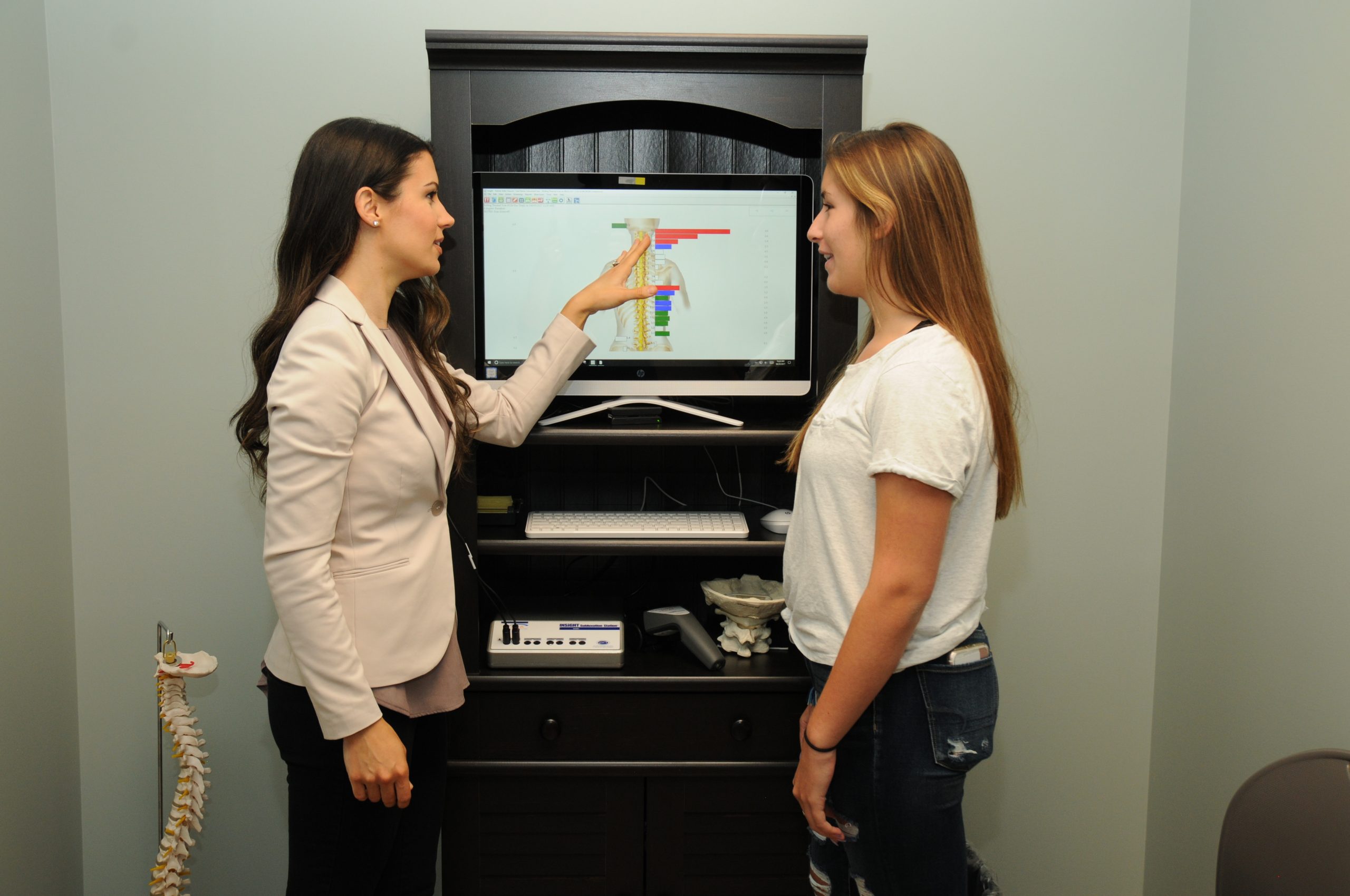Merry Christmas & happy holidays! Many of our Essential Family Chiropractic mamas share about stress, which is certainly known to feel amplified during this season. You might be familiar with the mental gymnastics–coordinating schedules, making thoughtful purchases, and the never-ending to-do lists. Holidays may bring up emotions from the loss of loved ones or triggers from past hurt. The emotional stress of those mental gymnastics and grief turns physical with lower tone in the body.
Then, let’s add in some of the stress that comes with all of the fun holiday parties! Most of our parties include food and drinks we would not typically choose for ourselves and families. These are chemical stressors our bodies then need to detox out. How about when we frantically clean our homes, hang up thousands of lights, and have to hold a specific posture putting the angel on the Christmas tree at just the right angle? Sounds physically stressful to us!
 We’ve all been there and you need to know that there are better ways to manage your emotional, chemical, and physical stressors (that quite literally weigh down your body) way more effectively than the “I’ll grin and bear it” approach. Our Essential Family Chiropractic families recognize with consistent chiropractic care that their stress seems to affect them less. They notice changes in their body such as higher energy levels, deeper sleep . . . and that family member who seems to push all the buttons, no longer seems as irritating. Why is this? Chiropractic care helps to balance and regulate the nervous system, which in turn regulates our stress responses.
We’ve all been there and you need to know that there are better ways to manage your emotional, chemical, and physical stressors (that quite literally weigh down your body) way more effectively than the “I’ll grin and bear it” approach. Our Essential Family Chiropractic families recognize with consistent chiropractic care that their stress seems to affect them less. They notice changes in their body such as higher energy levels, deeper sleep . . . and that family member who seems to push all the buttons, no longer seems as irritating. Why is this? Chiropractic care helps to balance and regulate the nervous system, which in turn regulates our stress responses.
Your Nervous System | Stress Response
When we live in this state of stress without a way to help our body manage it, stress changes how our nervous system functions. We have two major parts of our nervous system (NS)–the sympathetic NS and the parasympathetic NS. If we think where parents spend most of their time mentally, read below and see if it aligns with your own thoughts:
“Where is Emmie? Is she safe, playing well with others, and doing well without me?” “Did Cooper just get punched by the other boy?” You jump up in case he needs you. Nevermind, it was a false alarm. “That slide is exactly the kind Myles loves to climb up the wrong way. Be sure he is remembering the right way to use it when the playground is busy.” “What is that person by the woods doing here? I haven’t seen them with any children.” Gotta keep an eye on him.
Sitting next to you is another parent, but certainly no meaningful conversation is taking place. Both of you are worried for your littles in this moment.
Did any of these thoughts sound familiar?
None of these thoughts have to do with personal well-being. “I’m thirsty but don’t have water.” That can wait. “When’s the last time I peed? Did I eat lunch?” You could probably use a restroom, but you have too much to do and too little time.
And we get it. We understand the fight or flight response, thanks to our sympathetic NS. When we are stuck here for long-term, our body learns this as normal. It is normal to not listen to our thirst indicators, not get proper nutrition, not rest when our body is screaming that it needs it. Obviously, these situations are not normal, but they are common. Our nervous system is more focused on survival from perceived threats than vital functions, especially in moments of higher stress.
Now think about being at the spa. Kids are with grandma for a day of fun. You can enjoy massage, facial, and nail appointments. The peaceful music and warmth of the masseuse’s hands make you almost fall asleep. “Ooh, this steamy latte they brought during the mani-pedi was just what mama needed!” Your parasympathetic NS is focusing on vital body functions again. It allows your heart to pump at a regular healthy rhythm and allows you to digest foods well, get a great night’s sleep, and listen to your body with more ease.
Could you possibly feel similar relaxation (internal peace) in the playground scenario? How many of us have felt on edge like you are at the playground, but trying to relax at the spa? While it is important to spend time in both parts of the nervous system, our body is really good at surviving. Without a way to regulate our nervous system, it will choose to stay in fight or flight–in order to keep your family safe.
Stressors + Your Body
Emotional stressors manifest as physical burdens in the body. It causes more stress hormones to be made that act on the nervous system. And, when the brain is distracted with stress, it has to prioritize problem-solving to find a solution. You only have so much bandwidth to get kids to activities, cook food, keep the house clean, plan for future events, etc. Your brain only has so much bandwidth to coordinate all of the actions of your body.
This is where it switches from parasympathetic focus (your digestion, sleep, and detox processes) to sympathetic focus (sending blood to your arms and legs instead of vital organs, and running on stress hormones). Stress also interferes with sending messages (via brain waves along nerves) to muscles surrounding the spine. This results in the spinal muscles being weakened. This slight weakness or lack of tone, that we rarely consciously feel, makes our spine susceptible to misalignment.
When we are out of alignment, small physical stressors like sneezing, picking up a laundry basket, or other “low stress” daily activity we have done hundreds of times is much more likely to have a long-lasting impact on our body than it ever would have before.
You might be wondering, “Great, so what am I supposed to do about it? Run away from all responsibility and stressors?” Some days that might sound like the only answer. However, we have a better one! But first, you should know what is happening on a deeper level in your body.
Stress + Chiropractic Care
Stress leads to low tone in our spinal muscles causing us to subluxate (when bones go out of alignment causing irritation in our nervous system). The nerves affected could be nerves transmitting signals to muscles, glands, organs–some we can feel, many we cannot. So, even if we don’t have pain, we can absolutely still have a subluxation causing all kinds of issues. It can cause us to get stuck in sympathetic mode (playground mama) even when the stress is absent (spa mama). This will continue to suppress your rest, digestion, reproduction, and healing modes.
Gentle and specific chiropractic care in a subluxation-focused office can help to free your brain and nervous system from the constant pressure on nerves. With each and every adjustment, we are guiding your brain back towards spa-type focus. This enables your brain to bounce back and forth between playground and spa modes, as necessary. This means our mamas often welcome back proper digestion, better sleep, and more patience with their kiddos and spouse. Sounds like we have achieved that inner peace, even during the busy holiday season!












